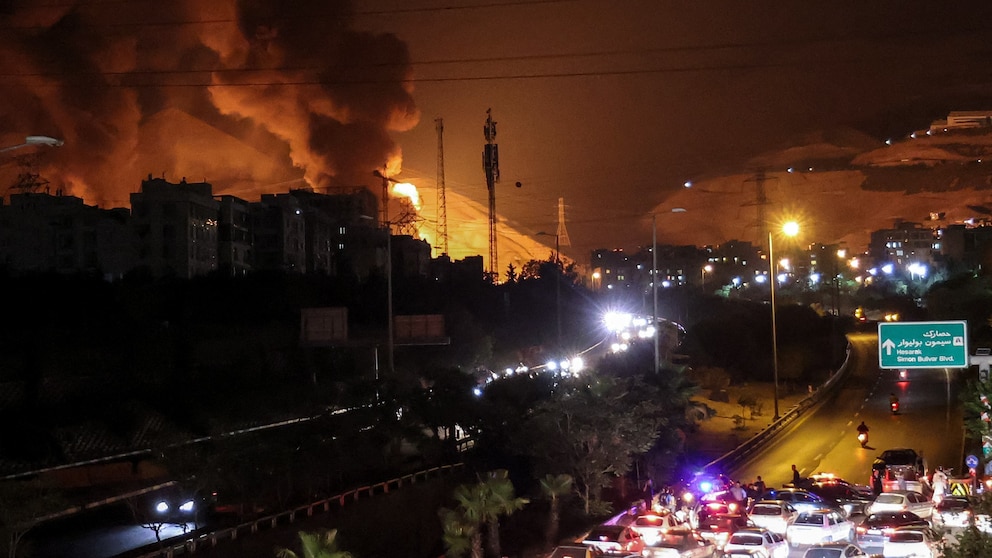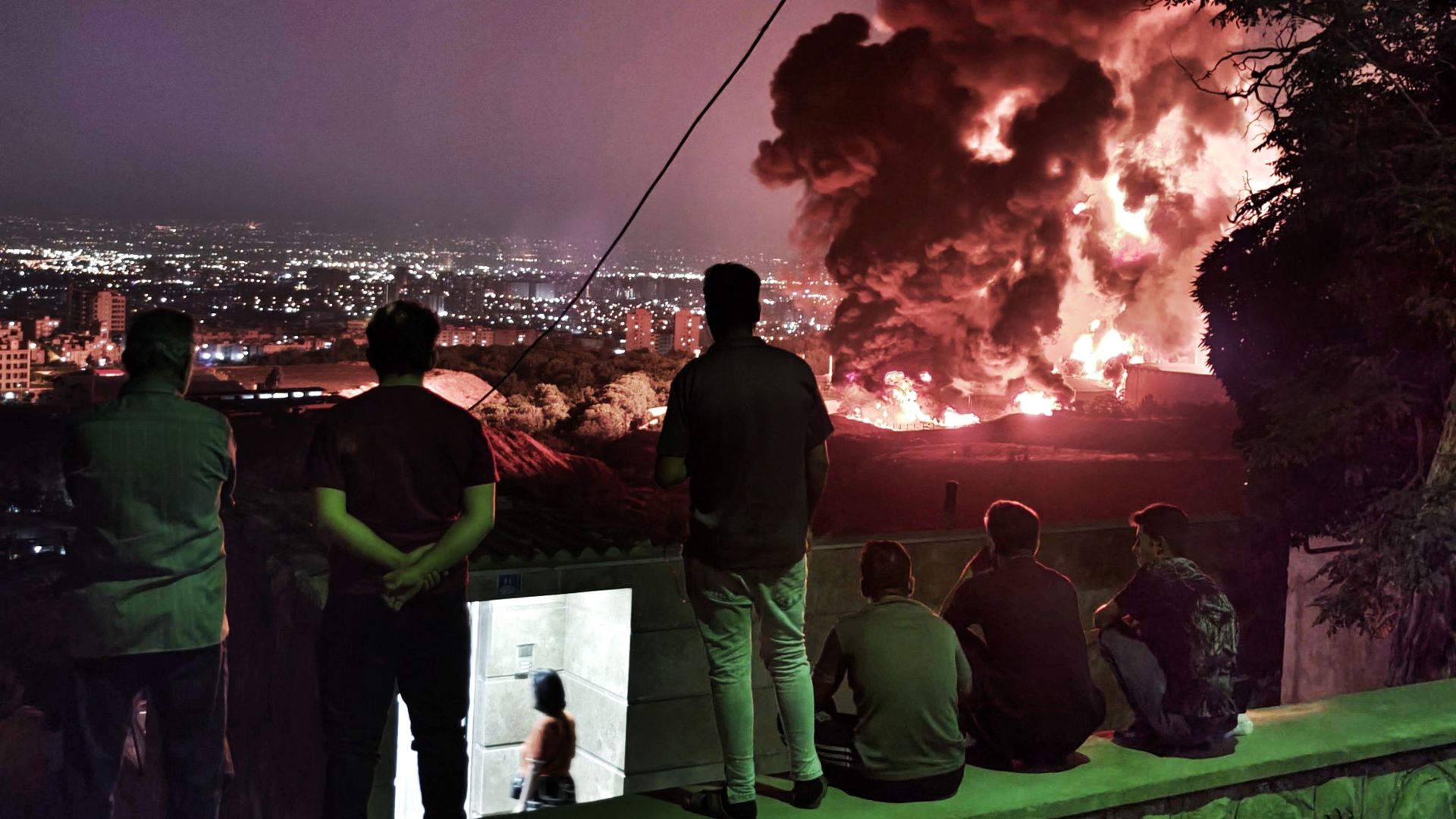
President Donald Trump’s latest remarks on the volatile situation in the Middle East have intensified speculation over whether the United States could be pulled into an escalating conflict between Israel and Iran. While speaking to ABC News on Sunday, the president made it clear that the U.S. is currently not involved in Israel’s military operations against Iran but added pointedly, “It’s possible we could get involved.”
His carefully worded statement underscores the fine line the administration is walking between showing restraint and leaving open the possibility of decisive intervention if regional instability worsens.
Trump’s comments come just days after reports emerged that Israel had actively urged the United States to participate in coordinated strikes aimed at dismantling Iran’s nuclear infrastructure. Although President Trump refused to confirm whether Israeli Prime Minister Benjamin Netanyahu had personally requested U.S. military support, his omission left many wondering how close America is to becoming a participant in what could quickly spiral into a broader regional war.

The geopolitical backdrop is increasingly tense. On Saturday, President Trump held an extended phone call with Russian President Vladimir Putin, during which the two leaders discussed the escalating situation in the Middle East at length. According to Trump, the conversation centered more on the Israel-Iran conflict than on Russia’s ongoing involvement in Ukraine or other bilateral matters.
The president revealed that Putin had proposed mediating between Iran and Israel, an idea to which Trump responded, “I would be open to it.” Trump emphasized that Putin appeared genuinely interested in de-escalating the tensions, saying, “He called me about it. We had a long talk about it… This is something I believe is going to get resolved.”
The prospect of Russia serving as a diplomatic bridge between two bitter adversaries—Israel and Iran—is both unusual and telling. For decades, the United States has played the central role in Middle East peace negotiations.
But Trump’s willingness to entertain Putin’s mediation offer suggests a potential shift in the dynamics of American diplomacy and could indicate a desire to avoid direct military entanglement while still maintaining influence over the eventual outcome.

Meanwhile, Steve Witkoff, the president’s special envoy, was scheduled to travel to Oman for a new round of nuclear talks with Iranian officials. These talks were expected to explore the possibilities of reviving a framework to prevent Iran from advancing its nuclear weapons program.
However, those plans were quickly upended following Israel’s airstrikes, which Tehran claims were conducted with at least implicit support from Washington.
Iranian Foreign Minister Abbas Araghchi slammed the attacks as unjustified and accused the United States of complicity, citing that such operations “could not have happened without the agreement and support of the United States.”
In retaliation, Iran abruptly canceled the upcoming nuclear meeting. Iranian officials now say they no longer trust the United States’ intentions, especially following the latest military escalations. Nevertheless, President Trump remained measured and cautiously optimistic in his response. He disclosed that Iran had been given a “60-day ultimatum” to strike a deal, but when pressed about whether he would impose a new deadline, the president declined.
“No, there’s no deadline,” he told ABC News. “But they are talking. They’d like to make a deal. They’re talking. They continue to talk.”

This emphasis on dialogue, even amid rising tensions, signals Trump’s preference for negotiation backed by pressure, rather than immediate military engagement. He went further, suggesting that the conflict itself could become a catalyst for progress at the negotiating table. “Something like this had to happen,” he said cryptically. “They want to talk, and they will be talking. May have forced a deal to go quicker, actually.”
Still, Iran’s leadership appears far less sanguine. In a speech to foreign ambassadors in Tehran, Iran’s foreign minister doubled down on his claim that the U.S. is indirectly responsible for the strikes, reiterating that Tehran does not “believe the U.S.'s claim” of non-involvement.
This mistrust, combined with the collapse of scheduled diplomatic efforts, leaves the nuclear crisis in limbo at a time when regional flashpoints are multiplying.
Trump’s balancing act—offering openness to mediation while signaling potential military engagement—is emblematic of his broader Middle East policy. Unlike the Obama-era doctrine that prioritized multilateral diplomacy, Trump’s administration favors bilateral pressure, backed by force if necessary, while remaining flexible to unorthodox solutions, including allowing rival powers like Russia to play a more active role.

The ramifications of Trump’s comments are enormous. If the United States ultimately becomes involved militarily, it could mark a dramatic expansion of America’s footprint in the Middle East at a time when the Pentagon has already been stretched thin across multiple fronts.
Conversely, if Trump successfully leverages these tensions into a diplomatic breakthrough, it could serve as a powerful testament to his brand of foreign policy—aggressive, transactional, and results-oriented.
Yet critics argue that Trump’s ambiguous posture may embolden both Israel and Iran to escalate, believing that the U.S. will eventually back one side. Already, within the Beltway, questions are swirling around the lack of transparency surrounding communications with Netanyahu.
Members of Congress from both parties are demanding briefings on any discussions with Israeli officials that may have preceded the latest wave of military activity.

From the president’s side, the message remains purposefully unclear. Trump insists that America is not currently involved but reiterates that the situation is fluid. “We’re not involved in it. It’s possible we could get involved,” he repeated during the ABC interview—a statement likely crafted to maintain strategic ambiguity while buying time for backchannel diplomacy.
Meanwhile, America's Arab allies are watching closely. Gulf states like Saudi Arabia and the United Arab Emirates, which share deep concerns over Iran’s ambitions, have expressed private support for the strikes while remaining publicly cautious. If the U.S. joins the conflict, it could polarize the region even further, potentially drawing in proxies and igniting new fronts from Lebanon to Yemen.
In the absence of a clear off-ramp, the president’s next move will be closely scrutinized. With nuclear talks frozen, accusations flying, and both Iran and Israel bracing for further retaliation, the chance of a regional war looms larger by the day. Trump’s future decisions could either pull the region back from the brink—or push it over the edge.
For now, America watches, poised between war and diplomacy. And the president, as always, holds his cards close to the chest.



